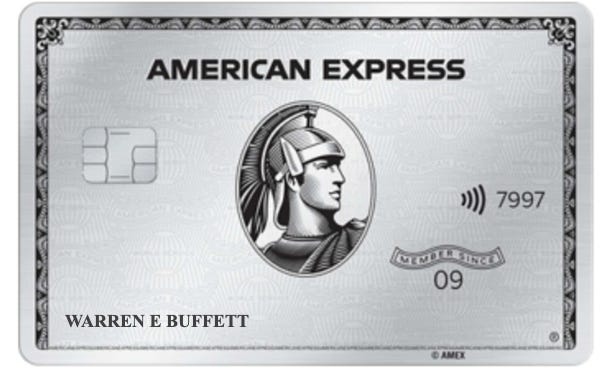Hey Big Spender
Amex's Millennial Revival
I didn’t make it to Omaha this year which is a shame because looking at the footage online, Warren’s tribute to Charlie was quite something. As Buffett has said many times, he owes much of his success, and that of Berkshire Hathaway, to Charlie’s influence on his investment strategy. However he was spending his time and money before, “Charlie came along and told me how to put it to even better use.”
We’ve talked about Warren Buffett plenty of times here before – how he structured his investment business, his long-standing interest in financial services companies and his investment in Capital One. But we’ve never looked closely at American Express, one of his largest holdings. At his annual meeting in Omaha last weekend, he credited Charlie for Berkshire acquiring its position in the stock. Buffett had owned it many years earlier in his investment partnership when it traded down to a very cheap price following a scandal, but Charlie’s focus on quality over price persuaded him to look again. “And that’s sort of the story of why we own American Express, which is a wonderful business,” he told shareholders.1
Buffett outlines the legacy of the holding in more detail in his recent shareholder letter. He describes how American Express became a recognisable brand name worldwide alongside its core products, enhancing its appeal in an environment where unquestioned financial trust is a timeless essential. He bought $300 million worth of preferred equity redemption stock in 1991 but when it was time to convert to common stock in 1994, he wasn’t so sure. “Amex faced relentless competition from a multitude of card-issuers, led by Visa. Weighing the arguments, I leaned toward sale,” he wrote in his 1997 letter.
But a golf game with the CEO of Hertz caused him to change his mind. “Frank [Olson] is a brilliant manager, with intimate knowledge of the card business. So from the first tee on I was quizzing him about the industry. By the time we reached the second green, Frank had convinced me that Amex’s corporate card was a terrific franchise, and I had decided not to sell. On the back nine I turned buyer, and in a few months Berkshire owned 10% of the company.”
Since then, Berkshire hasn’t sold a share, but because Amex has bought back stock from others, its stake has inflated. Today, Berkshire owns 21% of the company. Such a large stake requires it to agree to “passivity commitments” from the Federal Reserve to limit its control over an important financial company. Buffett doesn’t mind. “Our share of AMEX earnings in 2023 considerably exceeded the $1.3 billion cost of our long-ago purchase,” he wrote in his most recent letter. American Express (and Coca-Cola, his other large long-standing holding) “will almost certainly increase their dividends in 2024 – about 16% in the case of AMEX – and we will most certainly leave our holdings untouched throughout the year. Could I create a better worldwide business than these two enjoy? As Bertie [his sister] will tell you: ‘No way.’”
Usefully, American Express hosted an Investor Day in New York City a couple of weeks ago, where Chairman and Chief Executive Officer Stephen Squeri laid out plans for the business. There aren’t many executives around like Squeri: He started out as a manager in the company’s traveler’s cheque group in 1985 and worked his way up. Over the past six years, he has transformed the business, contributing to an acceleration in revenues. Going forward, he is confident the company can deliver 10% revenue growth per year. To see how American Express – a 174 year-old company – not only stays relevant, but continues to grow in a competitive field, read on.

